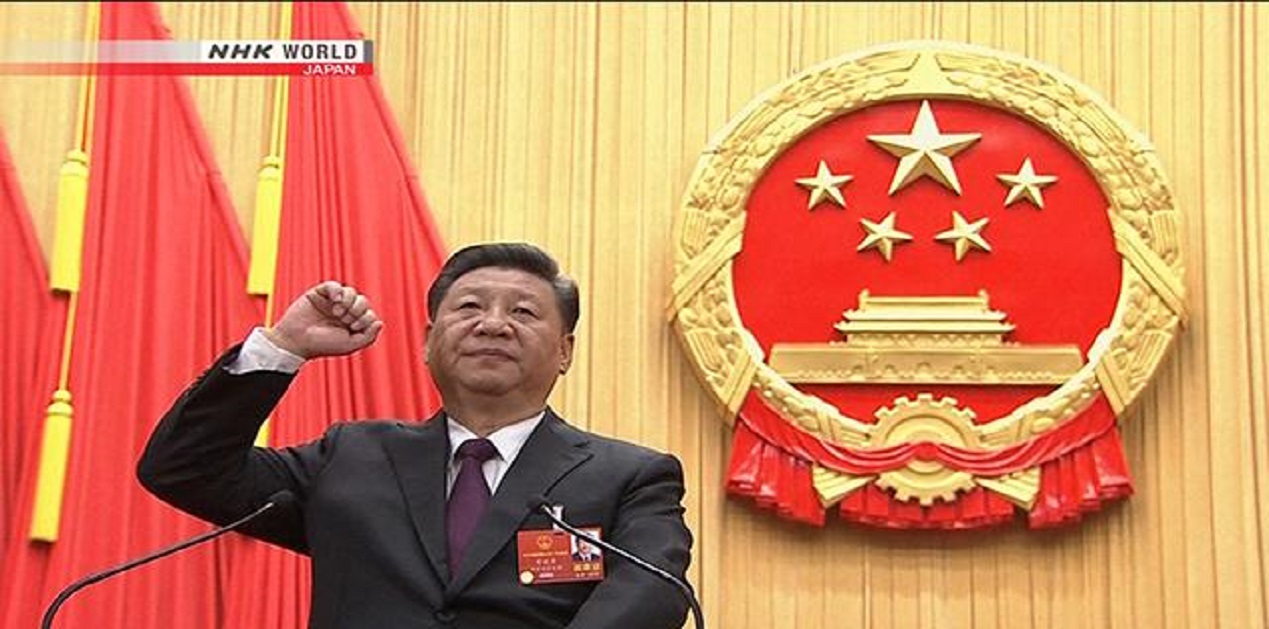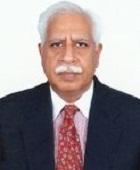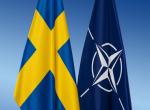It would be unwise today to discount reports of opposition to Chinese President Xi Jinping. This especially since opposition to him burst into the open first in 2017-2018 when Xi Jinping abolished term limits for the top Party posts at the 18th Party Congress. Dissatisfaction with the Chinese Communist Party (CCP) and Xi Jinping personally, surfaced again in 2020, when the authorities mishandled the outbreak of the Covid pandemic. The period leading to the 20th Party Congress, crucial for Xi Jinping if he wants to continue to lead China, is sensitive.
Chinese history is full of accounts of plots and attempted, or successful, coups against the Emperor. The more contemporary history of the Chinese Communist Party (CCP) has been no different. Despite Mao Zedong's pre-eminent stature in China and the CCP, he often suspected that he was the target of plotters. Those suspected of plotting against him, including close comrades, were ruthlessly eviscerated. Deng Xiaoping faced opposition from his colleagues on issues of policy, but his proteges had to contend with sustained efforts to oust them. Efforts to create factions and make a bid for power continue, especially with the revolutionary veterans having faded from the scene. In fact, at the time of Xi Jinping's predecessor Hu Jintao, another ‘princeling’ Bo Xilai, successfully cultivated factions in the Party, military and security apparatus in his failed bid for Xi Jinping's position. He is now under house arrest!
Born in 1953, Xi Jinping is a ‘princeling’, or son of a senior Party leader with revolutionary credentials, who spent many years growing up in the confines of the leadership compound in Zhongnanhai in Beijing. He went to the ‘August 1’ special school for children of senior Party leaders. This enabled him to closely watch the inner workings of the CCP, including how deadly it can be as during the Cultural Revolution which he barely survived. Unlike many of his school comrades, Xi Jinping chose to join the CCP. He became a party apparatchik and rose through its ranks without the ‘protection’, or helpful influence, of his father who had been purged by Mao. Things changed after Deng Xiaoping captured power in 1979 and rehabilitated Xi Jinping’s father, Xi Zhongxun, as Vice Premier.
The extent and stridency of criticism in 2012 and 2020 by Chinese intellectuals, professors, students, journalists, the public and even members of the CCP, of the Party and Xi Jinping personally, would have caught him unawares. Many of the criticisms were posted on the social media and the offending posts were not taken down immediately by censors of the China Cyber Administration, suggesting that elements sympathetic to the critics were present in the security apparatus. The steps being taken by Xi Jinping to strengthen his grip on the levers of power confirm that opposition continues to simmer.
With his experience and insights into the inner workings of the CCP, Chinese President Xi Jinping has been taking measures to prevent being surprised in the run up to the Party Congress next year. In the midstream of criticism and in the wake of China’s ‘princelings’ posting an ‘open’ letter on social media calling for an “emergency enlarged meeting of the Politburo to discuss Xi Jinping’s removal”-- which remained posted on the social media for weeks --Xi Jinping set up the ‘Safe China Constructing Coordinating Small Group’ in April 2020. This new security body comprised Xi Jinping loyalists and Guo Shengkun, Politburo member and Chairman of the powerful Political and Legal Affairs Commission (PLAC), was appointed its head. This high-powered group reports directly and only to Xi Jinping. Its tasking is interesting: to “prevent and crackdown on activities that endanger the political security of the country”. Later, the 26th 'collective study session' of the Politburo chaired by Chinese President Xi Jinping on December 11, 2020, decided on ten measures to tighten security. Among these prioritising political security was identified as a top-level concern. References to “political security” and “political stability” in China’s official media have visibly increased thereafter.
Around this time Wang Xiaofong, Executive Director of the Ministry of Public Security (MPS) and Director of the Secret Service Bureau charged with protecting the senior retired veteran cadres and Politburo members, suggested to Xi Jinping that “We must increase the monitoring of the ‘top leaders’ decision-making power, staff appointment power, and financial approval power, to let the ‘top leaders’ get used to working and living under monitoring”. The implications are obvious.
The following month the Party’s leading theoretical fortnightly journal Qiu Shi began calling for “protecting” Xi Jinping as the “core” of the Party. The People’s Liberation Army (PLA) had already started exhorting cadres to “protect” Xi Jinping as the “core” of the Party from 2019.
Obviously keeping in mind the pivotal role of the public security apparatus, Xi Jinping loyalist Chen Yixin announced a three-month (July-October) pilot programme to prepare for a penetrating “rectification” of China’s security apparatus in July 2020. Chen Yixin was handpicked by Xi Jinping as Secretary General of the PLAC. Indicating that the campaign would be far reaching and thorough, Chen Yixin called the pilot programme the beginning of “a self-restoration with the blade inward and bone scraping to cure the poison”!
On June 10, 2021, Chen Yixin announced that in the initial phase 75,084 security personnel had been disciplined, 1760 were placed in ‘liuzhi’ (detention), and 1012 sent for prosecution. As indicated by Guo Shengkun while addressing a meeting of the Political and Legal Education and Rectification Leading Groupon June 16, the campaign is far from over.
Xi Jinping has been attentive to other aspects too. In October 2020 he strengthened his grip on the Party apparatus and assumed the authority to not only convene meetings of the Politburo (PB) and Politburo Standing Committee (PBSC) but also to explicitly set the agenda for the meetings. This precautionary move allows him to exclude topics that could question his decisions or undermine or embarrass him.
With an eye on the elections to the subordinate bodies that elect delegates to the Party Congress, certain changes were mandated by the CCP Central Committee (CC)’s ‘Opinions on Selection of First Secretaries and Task Forces in Key Villages’ on May 12, 2021. The main emphasis is “on building a team of leaders and cadres that are politically sound and capable of leading modernization.” In this context, the CCP CC’s instructions call for emphasising both, ability and political integrity, but with greater emphasis on the latter. It stated “It is necessary to thoroughly investigate political loyalty, political determination, political responsibility, political ability, political self-discipline, political judgment, political understanding, political execution, etc. Those who fail to observe political discipline and political rules and have problems such as “seven haves” shall not be selected as candidates.”
Xi Jinping has also sought to ensure that the wealthy Chinese private entrepreneurs and businessmen who have been critical of his policies and called for reforms do not impede his efforts. While billionaire founder of Alibaba, Jack Ma has been brought down, Liu Changle of Phoenix Television has been compelled to sell his shares in Phoenix TV and its holding company. Wang Ting, billionaire founder of Meituan is also being investigated by China’s financial regulators. Xi Jinping has additionally got Chinese Mainland businesses supportive of him to buy out or get controlling shares in the Hongkong media which is critical of his policies.
In addition, in late April 2021 China’s Ministry of State Security issued a notice warning against attempts by the US and West to instigate a ‘colour revolution’ in China. A subsequent Global Times editorial singled out the US. Such calls for vigilance against efforts by Americans and westerners will fan the xenophobia latent among the Chinese.
Whether opposition to Xi Jinping gets any traction will depend largely on whether it receives the support of the influential retired veteran leaders. Important is whether the number of CCP cadres, particularly in the CCP CC, reach a critical mass. These will mainly comprise Party cadres and members who feel strongly about the Cultural Revolution and are unhappy with present policies. Meanwhile, though Xi Jinping presently controls all the levers of power and is taking measures to neutralize any opposition, there have been subtle hints of opposition in recent months. The extent of pressure that the deteriorating Sino-US relations exert on the CCP’s leadership in the coming months would be potentially important.
(The paper is the author’s individual scholastic articulation. The author certifies that the article/paper is original in content, unpublished and it has not been submitted for publication/web upload elsewhere, and that the facts and figures quoted are duly referenced, as needed, and are believed to be correct). (The paper does not necessarily represent the organisational stance... More >>
Image Source: https://www3.nhk.or.jp/nhkworld/en/news/backstories/131/images/1fe56818d01d0c365f57fa217224e3cdea313e5b.jpg











Post new comment